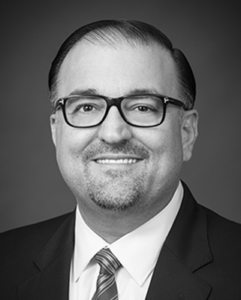Next week, we’ll celebrate Veterans Day, a time to honor and appreciate the sacrifices and selflessness of the men and women who serve in America’s armed forces.
In San Diego, where our connections to the military run deep, this day takes on even more importance. As the home to the largest concentration of military presence in the world with 110,000 active-duty personnel and nearly 250,000 veterans, it’s likely these active and veteran service members may be your neighbors, co-workers, loved ones, or patients. In addition, there are approximately 118,300 military family members, with an estimated 61% who are children.
This day also serves as a reminder that this large segment of the population faces a number of health care challenges, some of which your hospitals are likely very familiar with. In the 2022 San Diego Community Health Needs Assessment (CHNA), our community expressed deep concerns for veteran and military-connected community members. Veterans experience mental health disorders, substance use disorders, post-traumatic stress, and traumatic brain injuries at disproportionate rates compared to their civilian counterparts.
Like many in the region, veterans and active duty also face stigma, as well as challenges in accessing treatment. Unfortunately, even though health care is available to veterans through the Veterans Administration, it is not universally available to all veterans and their families. Of those who qualify, many do not apply. While the number of uninsured veterans has continued to decline in recent years, a number of veterans remain uninsured.
One thing is clear: Getting the right care is key to helping our veterans, and we must continuously work to improve the quality of care they receive. “The greatest need among active-duty military members and their families is behavioral health. Health care providers need cultural training to work with their military-connected patients,” according to a key informant in the CHNA.
Psych Armor, a partner in our 2022 CHNA, offers a free training designed for health care providers, called 5 Things Medical Professionals Need to Know. The training explains the importance of including conversations about firearms accessibility during safety planning in all types of clinical encounters.
We are grateful for our military personnel, both veterans and active-duty, and the families who support them. Thank you for your service, sacrifice, dedication, and all you have done for our country. And, to every health care worker who has served in the military, we appreciate your service to our country and your continued service to hospitals.
